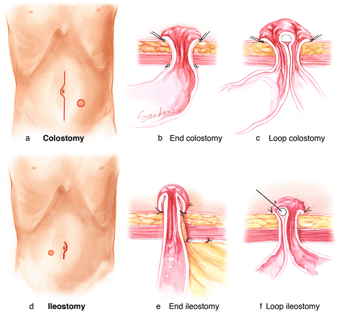A 15-year-old adolescent male with a mild mental disability is hospitalized for minor surgery and tells the practical nurse (PN), "Wow! You have big breasts."
Which response is best for the PN to provide?
The size of my breasts is of no concern to you.
That language is not allowed.
Do you really think so?
If you talk like that again, I will tell your parents.
The Correct Answer is B
This is the best response for the PN to provide because it sets a clear and firm boundary for the adolescent and discourages inappropriate or sexual comments. The PN should also redirect the adolescent's atention to another topic or activity and document the incident.
Nursing Test Bank
Naxlex Comprehensive Predictor Exams
Related Questions
Correct Answer is C
Explanation
The correct answer is choice C - IV infusion site is infiltrated. Choice A rationale:
The client reports feeling nauseous. While this symptom should be monitored, it is not the most crucial finding to report for a client in Addison's crisis. Nausea can be a common symptom during various medical conditions and may not warrant immediate action.
Choice B rationale:
Has not voided in four hours. While monitoring urine output is important, it may not be the most critical finding in Addison's crisis. Other symptoms like electrolyte imbalances and
circulatory collapse is more concerning in this scenario.
Choice C rationale:

IV infusion site is infiltrated. In Addison's crisis, the client's condition may be precarious, and any complications with IV therapy could worsen the situation. It is essential to report this finding promptly to prevent further complications.
Choice D rationale:
A serum glucose level of 85 mg/dL. While monitoring glucose levels is essential in many situations, a glucose level of 85 mg/dL is within the reference range, which means it is not the most critical finding in Addison's crisis.
Correct Answer is A
Explanation
This is the best action for the PN to implement because it addresses the client's question and provides an opportunity to educate the client about the fecal diversion surgery and its outcomes. The PN should review the type, location, and appearance of the surgical opening (stoma) and explain how it will affect the client's elimination and body image.

Whether you are a student looking to ace your exams or a practicing nurse seeking to enhance your expertise , our nursing education contents will empower you with the confidence and competence to make a difference in the lives of patients and become a respected leader in the healthcare field.
Visit Naxlex, invest in your future and unlock endless possibilities with our unparalleled nursing education contents today
Report Wrong Answer on the Current Question
Do you disagree with the answer? If yes, what is your expected answer? Explain.
Kindly be descriptive with the issue you are facing.
